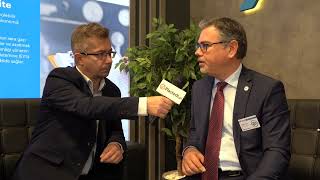 EuPC published response to calls to 'Ban or tax oil-based plastic shopping bags'.
EuPC published response to calls to 'Ban or tax oil-based plastic shopping bags'.In recent days, there has been much attention drawn to the issue of plastics waste in the environment, following public events on the European Commission's Green Paper on plastics waste.
EuPC has welcomed this green paper and the opportunity it provides to extend the dialogue that is needed between the entire value chain for plastic products.
In particular, the short life plastic carrier bag has surfaced many times as an example of a throw-away society and policies are now being discussed on how
best to tackle problems of littering associated with short life plastic carrier bags.
In 2012 EuPC proposed a voluntary agreement on plastic carrier bags called 'V-Bags Europe'. This voluntary initiative by the plastic carrier bags value chain aims at achieving more responsible consumption, use and end of life solutions for plastic carrier bags in order to ensure sustainability and environmental protection (in particular land & marine littering).
EuPC is now concerned by a number of statements being made that bio-based plastic shopping bags are more sustainable than traditional oil-based plastic shopping bags. As users of plastics raw materials, plastics converters only want to use the most sustainable materials that are fit for customers needs.
When considering the sustainability of a material we need to look at
resources used in their production, including land-use and water consumption
(in the case of biobased plastics and the sustainability of biomass used).
EuPC believes that any EU policy related to bioplastics needs to take account of lessons learned from the biofuels sector.
End of life solutions also play a crucial role in the determination of a materials
sustainability. Compostable and biodegradable plastics need to stay out of traditional waste streams in order to avoid detrimental impacts on the quality of recycling. Furthermore, bioplastics are not a solution to marine litter and this has been clearly recognised by the European Commission during an event on plastics waste held earlier this week.
Ultimately, EuPC believes that Europe needs to focus more on better separation and collection in order to ensure the correct end of life solution for different plastics materials and increase recycling towards a circular economy for all plastic products. With increased recycling targets for plastics expected within the EU in the coming years, EuPC believes that society is on the road towards a resource efficient and sustainable Europe, but the entire value chain needs to work together in order to achieve this. It is essential that society keeps working at educating consumers towards the responsible use of products and recovery at the end of a products useful life, however short this will be.
EuPC will shortly publish further test results on the negative impact of b
ioplastics on the plastics recycling streams.


